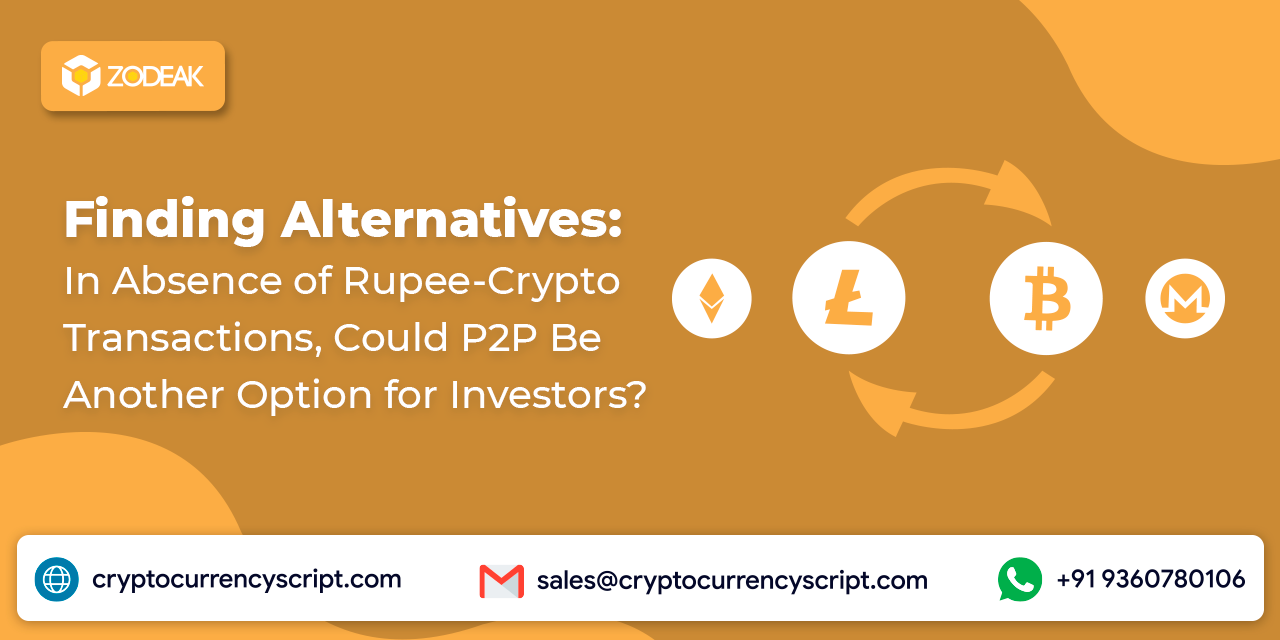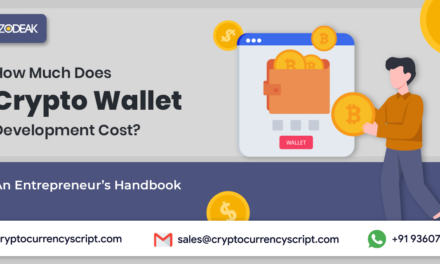In recent years, cryptocurrency has emerged as the royal card of the century, offering transparency and freedom from the traditional finance system. However, in countries like India, the rules and regulations for the rupee-crypto transaction remain undefined. Investors are out there wondering out loud, “What’s next?”. Is the Indian government considering a ban, or is it supportive of cryptocurrency transactions? And if they do so, in the absence of rupee-crypto transactions, could P2P be another option for investors?
In this blog, let’s address the crypto investment barrier, and find an answer to the important question, “Without rupee-crypto transactions, can P2P be a viable option for investors?
Tackling crypto investment barriers in India
Investing in cryptocurrency has always been a risky business due to its market ups and downs. However, it is significantly more so in India because of the regulatory uncertainties. The RBI, which is in charge of the country’s finance system is still unclear about official rules on cryptocurrencies. This uncertainty has made it difficult for big investors and crypto supporters in India to trade with rupees.
This issue affects more than just individuals. Banks in India usually avoid or are restrained from accepting cryptocurrency transactions. This makes using rupees to buy, sell, or exchange cryptocurrency even more difficult. However, as the saying goes, “Where there is a will, there is a way,” despite these challenges, some investors have found an alternative to trade with their currency through peer-to-peer transactions. P2P transactions are getting more popular in India, allowing investors to dance around these banking restrictions.
Understanding P2P transactions
- To make it easier to understand, imagine that you and your friend have Pokemon cards; you want a Pikachu card, which your friend has, and your friend wants a Bulbasaur card, which you have. You simply trade the cards between yourselves rather than going to the store to purchase new ones.
- Peer-to-peer transactions occur directly between buyers and sellers without the use of intermediaries like the bank or an exchange. With cryptocurrencies, the P2P platform makes it possible for its users to exchange their cryptocurrency directly for fiat currency or the other way around.
- The exchange solely facilitates the transaction, ensuring both parties are satisfied without participating in it.
Let’s now examine how it functions.
P2P Transaction Dynamics
- Listing & Matching set up: Both the buyer and seller list what they offer and what they want on the platform, and will be matched based on their specifications.
- Escrow safe: The escrow service takes hold of the asset or the money to ensure that both parties follow through with their promises before the trade is finalized.
- Release the asset: Once both parties are satisfied with their trade, the escrow will release the money or asset to their respective owners.
- Dispute buster: If someone experiences any foul play during the trade, they always have the option of settling the dispute through the exchange.
Reasons to think P2P transactions can reshape the future of crypto trading in India
Let’s find the answer to the core question of the blog, in absence of rupee-crypto transactions, could P2P be another option for investors?
1. Avoiding financial constraints
- One of the best things about using a P2P transaction is that you can entirely skip the bank. I mean, think about it, you don’t have to wait in long lines, there is no need to fill out paperwork, and there is absolutely no more waiting for bank officials to return from their lunch breaks.
- Since the transaction occurs between two individuals, the payment history remains decentralized, transparent, and immutable. Ensuring that banks do not need to be involved.
- This makes it increasingly difficult for legislators to impose restrictions, providing users more freedom to control their financial standing.
2. Privacy and Control
- Another thing about P2P transactions is the privacy they offer. You will have more privacy over your data than any traditional exchange.
- There is literally no chance for data breaches, as the trade will happen directly between the buyer and seller. The most crucial aspect is that you get to make any and all choices, including choosing who to trade with, how much to offer, and when to execute the deal. You are in charge of everything.
3. Fair pricing
- With P2P platforms, you can set your own price, whereas, in traditional trading, market condition determines the price. If you are patient and strategic, this flexibility may result in better deals.
- The crypto market is like an ocean that can shift in an instant. So, here, waiting and fishing for the perfect opportunity could make your patience pay off.
4. International Access
- P2P platforms are not geographically bounded. They enable you to trade in multiple currencies with people all around the world. This worldwide access gives you a chance to explore the global market and potentially help you find a better deal.
- It looks like we’re almost there in solving the question: “In the absence of rupee-crypto transactions, could P2P be another option for investors?” With P2P transactions, you’ll have the opportunity to trade with any currency you want rather than simply just limiting yourself to rupees.
Conclusion
As the cryptocurrency rules are still yet to be disclosed in India, P2P transactions can step up and be a viable alternative for investors. But the smart, profitable decision to make would be to create your own P2P exchange with the help of the P2P Crypto Exchange Script. While this blog aims to answer the question, “Can P2P Be an Option for Investors Without Rupee-Crypto Transactions?” it’s crucial to consider the risks associated with P2P transactions.
So, if you do it right, who knows? You might even open up a lot of new trading possibilities in India with your crypto Exchange platform.
If you ever feel like you might be interested in exploring this option further, give us a call, and let’s get this crypto party started!





